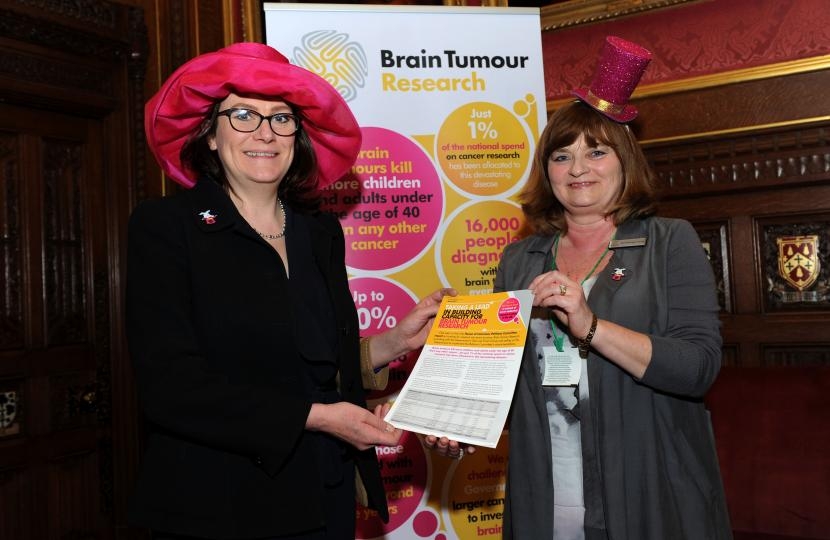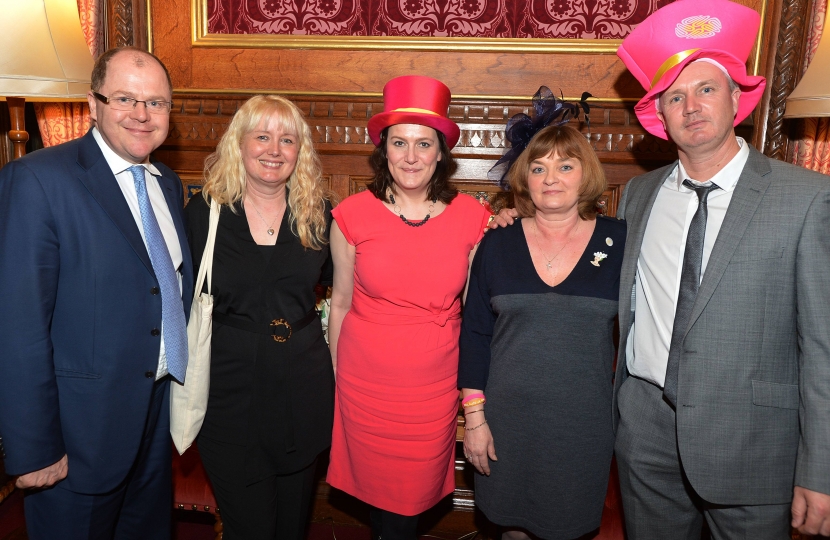Brain tumour research in the UK is set to be revolutionised with £45 million in funding by the Department of Health and Social Care and Cancer Research UK. Each year around 11,400 people in the UK are diagnosed with a brain tumour and just 14% of people survive their disease for 10 or more years.
In a bid to deliver a “step change” in survival rates, the Health and Social Care Secretary Jeremy Hunt has announced that an estimated £20 million in funding will be invested through the National Institute for Health Research (NIHR) over the next five years – with the aim of doubling this once new high-quality research proposals become available.
In her time as Chair of the All Party Parliamentary Group for Brain Tumours, Rebecca campaigned for increased funding into research for brain tumours. Brain tumours kill more children and adults aged under 40 than any other cancer, yet only receive 1% of national spend on cancer research. Rebecca has been behind the campaign ever since she met Chris & Lisa Green from Canvey Island whose tragic story of their 11 year old son, Danny, dying from a brain tumour, moved her into tackling this injustice.
Rebecca said: “I’m very pleased to hear the Government’s announcement. It was absolute honour to be a part of the campaign to fight for better supported research into brain tumours. Castle Point charities such as the Indie Rose Trust & the Danny Green Fund have played their part in raising awareness of this devastating disease.
Before the General Election we held a major debate on brain cancer research funding in Parliament which led to the Government researching the whole issue, not just about money, but how many research posts and clinicians work in the field and other barriers to progress. This excellent announcement is the result. This new funding will support vial research which aims to improve survival for children and adults with brain tumours.”
The Government funding announcement follows the publication of the report of the Task and Finish Working Group, led by the Government’s Chief Scientific Adviser Professor Chris Witty. Other actions include:
· A plan to improve the approach to trialling new treatments, including making better use of adaptive trials that enable patients to receive different treatments concurrently.
· The development of a new cadre of clinical-oncologists to ensure the NHS can draw on world class expertise in treating brain cancer.
· A commitment to treble the number of cancer patients whose whole genome is sequenced as part of their diagnosis over the next four years through the 100,000 Genomes Project.
· Improvements in how brain tumour tissue is collected and shared across the research community.
. A commitment from NHS England to work with Cancer Alliances and brain cancer surgery centres to understand the barriers to using 5 ALA – a special fluorescent dye that helps surgeons identify and remove more malignant brain tissue during operations.
Health and Social Care Secretary Jeremy Hunt said:
“While survival rates for most cancers are at record levels, the prognosis for people with brain tumours has scarcely improved in over a generation. I am grateful to MPs who have campaigned with great dignity and courage to raise awareness of this issue.
Our ambition is to deliver a big uplift in the funding of brain cancer research, while galvanising the clinical and scientific communities to explore new avenues for diagnosis and treatment in the future – it is a chance to create a genuine, step change in survival rates for one of the deadliest forms of cancer.”

